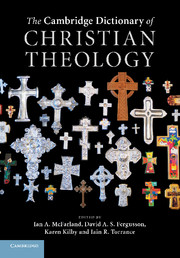F
Published online by Cambridge University Press: 05 June 2012
Summary
Faith Along with hope and love, faith has been understood in the Christian tradition (following 1 Cor. 13:13) as a theological virtue: a settled disposition enabling one to move towards God by grace. As the young Augustine observes, without faith one would not believe there was anything to hope for; without hope one would despair of attaining the realities of which faith speaks; and without love one would not even desire to come to that goodness in which one had come to believe (Sol. 6.12). It is in this sense that the tradition has generally interpreted the most famous biblical statement about faith – as making present even now something of the reality to which one is journeying: ‘Now faith is the assurance of things hoped for, the conviction of things not seen’ (Heb. 11:1).
Faith in the theological sense is thus only possible as a gift of God, for one cannot by oneself have natural certain knowledge or even right opinion of the divine realities which the teachings of faith seek to express. Classically, therefore, faith is considered according to two fundamental dimensions: it refers both to the beliefs or doctrines to which one assents (fides quae creditur), and also to the act of trust or adherence by means of which these beliefs are accepted as true (fides qua creditor, or, especially in the work of M. Luther, fiducia).
- Type
- Chapter
- Information
- The Cambridge Dictionary of Christian Theology , pp. 180 - 196Publisher: Cambridge University PressPrint publication year: 2011



